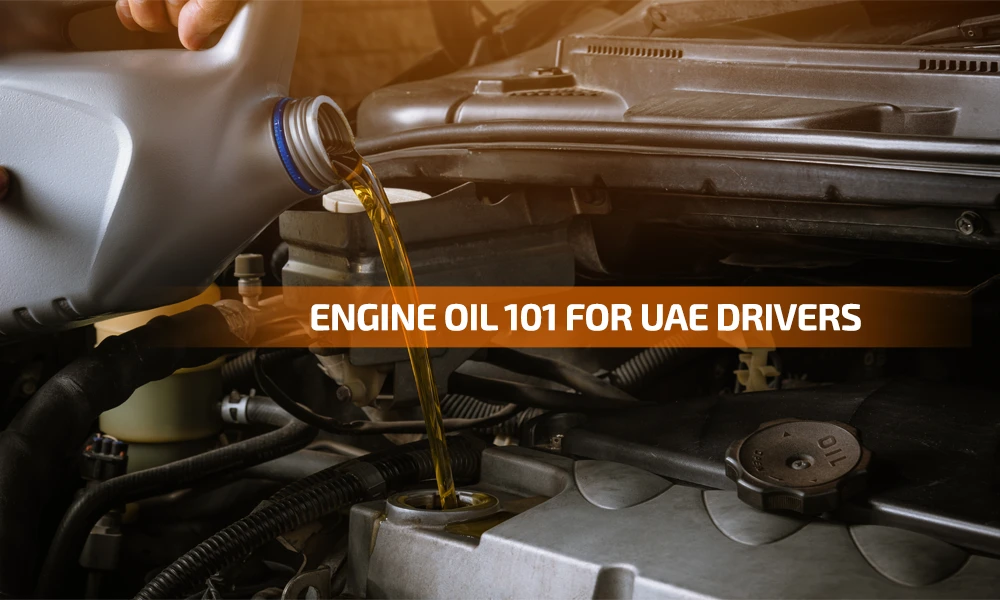Introduction: What Your Car’s Noises Are Telling You
Every car enthusiast knows that vehicles have a language of their own. From dashboard lights to strange smells and, most notably, unusual car sounds, your vehicle is constantly communicating with you. And while it’s easy to dismiss these auditory signals, some noises should never be ignored. They are often your first alert that something’s wrong, and delaying action could turn a small car repair issue into a costly disaster.
Let’s break down the five car noises you should never overlook, what they could mean, and how timely attention can keep your vehicle — and your wallet — in good shape.
Squealing or Screeching When Braking – A Cry for Brake Attention
You’re cruising down the road, and every time you apply the brakes, a high-pitched squeal cuts through the silence. That car sound isn’t just annoying — it’s potentially dangerous.
What It Could Mean:
- Worn brake pads: Most brake pads are designed with a built-in indicator that emits a squealing sound when the pad gets too thin.
- Rotor damage: If left unchecked, worn pads can damage your rotors, adding significant cost to your car repair bill.
- Contamination: Dust, dirt, or moisture on the brake components can also cause noises.
What to Do:
Schedule a brake inspection immediately. Early intervention can save you money and ensure your safety. Ignoring this warning may lead to full brake failure or expensive rotor replacements.
Related Source: Valvoline – Car Noises You Should Never Ignore
Knocking or Pinging from the Engine – The Sound of Engine Distress
A rhythmic knocking or pinging under the hood isn’t a beat you want to hear. This car sound usually signals a problem with engine combustion — and it requires swift action.
What It Could Mean:
- Low octane fuel: Using fuel with too low an octane rating for your engine can cause premature ignition.
- Carbon buildup: Over time, carbon deposits can alter combustion timing.
- Worn engine components: Lifters, rods, and valves can wear out and create that knocking sound.
What to Do:
Consult a car repair specialist as soon as possible. Ignoring this can lead to catastrophic engine failure.
Related Blog: All Around Auto Repair – 5 Sounds You Should Never Ignore
Hissing Under the Hood – Trouble Is Boiling Over
Hearing a hissing car sound after you’ve parked or while idling could mean steam or fluid is escaping under pressure — a sure sign something’s wrong.
What It Could Mean:
- Leaking coolant: A radiator or hose leak could be allowing steam to escape.
- Vacuum leak: Hissing could also signal a vacuum line leak, affecting engine performance.
- Overheating: Hissing paired with rising temperature gauges spells overheating danger.
What to Do:
Turn off your vehicle immediately and let it cool. Then have a certified car repair technician inspect the cooling system and vacuum lines.
Don’t miss this guide: Signs Your Car Needs Immediate Repair
Grinding While Shifting Gears – Transmission Trouble Brewing
If your automatic or manual transmission produces a grinding car sound when changing gears, it’s time to take it seriously.
What It Could Mean:
- Worn clutch (manual): A grinding noise when shifting is a classic symptom of a worn or misadjusted clutch.
- Low transmission fluid: Fluid is critical for smooth gear engagement.
- Synchro issues (manual): Grinding may result from malfunctioning synchronizers that help mesh gears smoothly.
What to Do:
Get a car repair professional to inspect the gearbox and fluid levels. Transmission repairs are notoriously expensive — early detection is your best defense.
Loud Roaring or Humming from the Tires – Wheels Want Your Attention
That persistent roaring or humming car sound that increases with speed? It’s often tire or wheel-related — and it’s not just about noise; it’s a safety concern.
What It Could Mean:
- Worn wheel bearings: A humming that increases with speed can signal failing wheel bearings.
- Tire issues: Uneven wear, improper inflation, or tire misalignment can also cause noise.
- Suspension problems: Issues with shocks or bushings might amplify road noise.
What to Do:
Inspect your tires, rotate them regularly, and have your alignment checked. If the problem persists, consult a car repair technician to rule out bearing or suspension faults.
Why Ignoring Car Sounds Can Cost You More Than Money
These car sounds are early warning systems, and ignoring them doesn’t just risk your safety — it hits your wallet hard. A squeak can become a screech. A knock can become a blown engine. A hiss can turn into a breakdown on the side of the road.
Regular maintenance and proactive car repair not only keep your car running efficiently but also help avoid major surprises.
How to Stay Ahead of Car Noises: Prevention Tips
Staying ahead of these issues means being proactive. Here’s how:
- Listen actively: Tune in to changes in your car sound environment.
- Schedule routine inspections: Work with a trusted car repair shop to catch problems early.
- Stay educated: Knowing what common car sounds mean empowers you to act quickly.
For more on urgent car repair signs, explore: Miss Auto – Car Warning Lights You Shouldn’t Ignore
Top FAQs: Car Sounds You Should Never Ignore
- Why are unusual car sounds important to notice?
Unusual car sounds often signal early mechanical issues. Ignoring them can lead to expensive car repairs or safety risks.
- What does a squealing noise while braking mean?
It typically means worn brake pads or rotor issues. Immediate inspection is recommended.
- Is engine knocking always serious?
Yes. Engine knocking or pinging can indicate combustion problems, which can lead to engine damage if ignored.
- Why does my car hiss after turning off the engine?
A hissing car sound often signals coolant leaks, overheating, or vacuum line issues.
- What causes grinding when shifting gears?
Grinding sounds may be due to worn clutches, low transmission fluid, or faulty synchronizers.
- Should I worry about a roaring or humming sound from the tires?
Yes. This could point to bad wheel bearings, alignment issues, or tire wear that affects safety.
- Can I drive if I hear a weird car noise occasionally?
Any persistent or unusual car sound warrants inspection—even if it’s occasional—to prevent further damage.
- How can I prevent car noise-related issues?
Regular maintenance, timely inspections, and listening to your car’s signals are key preventive measures.
- What kind of technician should I consult for strange car noises?
A well professional car repair technician with diagnostic experience is ideal for identifying and fixing sound-related issues.
- Are these car noises covered under warranty or service plans?
It depends on your warranty terms. Many issues like brakes and transmission may have limited coverage—check with your provider.
Final Thoughts: Your Car Is Speaking – Are You Listening?
The road is filled with noise, but certain car sounds deserve your full attention. From squealing brakes to hissing under the hood, every noise is a symptom waiting to be diagnosed. Ignoring them may be convenient now, but the cost — both financial and personal — can be severe.
So the next time your vehicle sends an audio SOS, don’t turn up the radio. Turn into your trusted car repair center and let a professional decode what your car sound is saying.
Because when it comes to your safety and your car’s longevity, silence isn’t golden — listening is.







